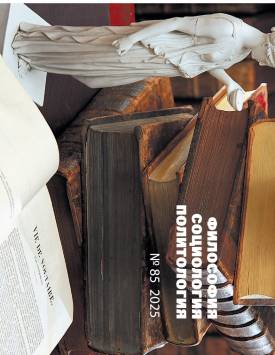The economics of digital communication
The distinction between infinitum and interminatum, made by Nicolaus Cusanus, finds its place in Shakespeare's tragedy Romeo and Juliet. But the playwright understands interminatum (boundless) not as the endlessness of recounting, but as self-increasing wealth, that is, such a way of sharing when in condivision a thing does not decrease, but increases (the more I give to thee, / The more I have). The article examines how this self-increase is structured and under what conditions it appears. Shakespeare named two boundless things: love and bounty. But affects (as long as they can be clearly described), rules, and imperatives are the same nature. I propose to name such well-shared things “inescapability”. The article notes that when Descartes, following Cusanus, distinguishes the infinite from the boundless, he understands it just as infinitely divisible, but not increasing in share. Although inescapability occupies a key place in the construction of Spinoza's ethics, in the Early Modern philosophy it still remains rather a utopian property than one seriously discussed. Today, there are more and more inescapable things: a variety of viruses, files, and nuclear weapons. Not only do we lack an established term for things that have this property, we confuse this property with the inexhaustibility of resources, since our language of exchange is formed by an economy built on deficit, while real wealth is inescapable. Since we do not know how to name them, we do not know how to manage them. To handle them means to understand the nature of well-shared things, produced by scientific communication. The terms I propose, namely, well-shared things and inescapability, are similar in meaning to the concept of distributed cognition introduced by Hutchins and developed by Russian researchers. The difference from this concept is the quantitative certainty important for shared knowledge: for a conversation about well-shared things it is important with what number of agents we can share them: with everyone, with many, or even with no one at all. The author declares no conflicts of interests.
Keywords
infinite, boundless, Shakespeare, wealthAuthors
| Name | Organization | |
| Malyshkin Evgenii V. | Saint Petersburg State University; Higher School of Economics | malyshkin@yandex.ru |
References

The economics of digital communication | Tomsk State University Journal of Philosophy, Sociology and Political Science. 2025. № 85. DOI: 10.17223/1998863X/85/2
